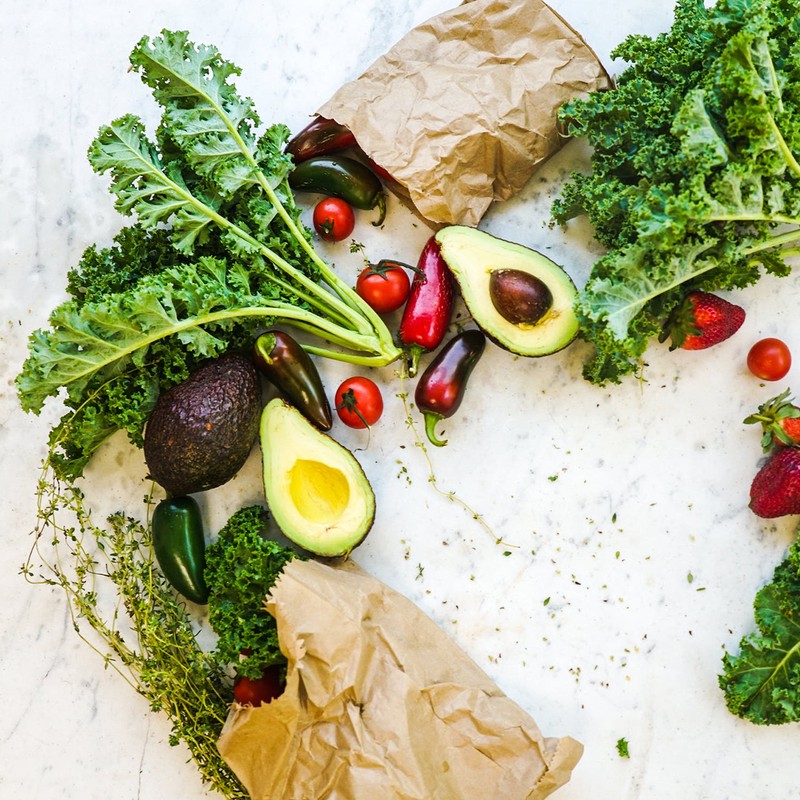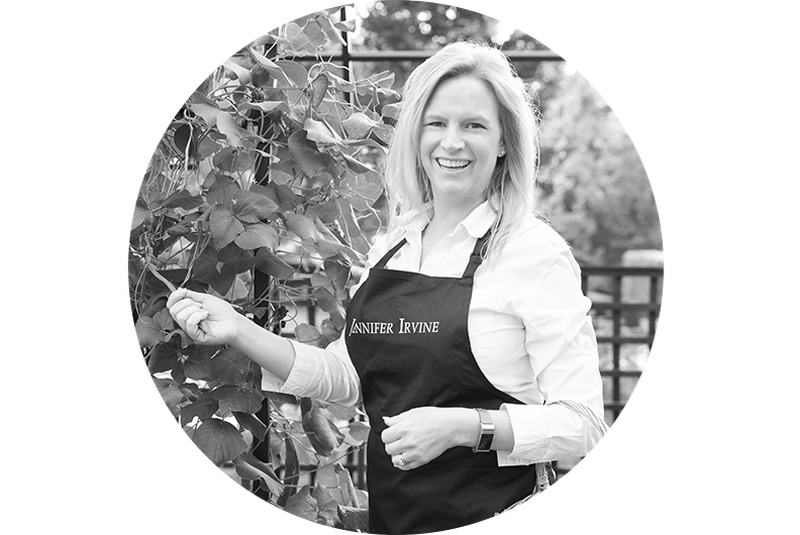Expert-Approved Ways To Eat Healthy On A Budget
LOVE YOUR LEFTOVERS
“UK households waste 4.5 million tonnes of food every year, which amounts to around £700 for an average family with children. Smoothies and soups are great examples of dishes that can swallow up all sorts of leftovers. Kids who won’t eat apple or cucumber skins? Pop them into your blender cup and leave in the fridge for tomorrow morning’s smoothie. Not using the leaves on that cauliflower or those potato peelings? Whizz them up into a veg soup. I have a weekly organic vegetable box delivered from Riverford, but if I still have veggies left from the previous week when the new ones arrive, I cook them in a pan with some stock or bone broth, then blend them into a soup. Things like egg muffins are a great way to use up leftover veg – plus, even organic eggs are relatively cheap compared with meat.”
DON’T OVERLOOK FROZEN
“Don’t be fooled into thinking frozen foods are inferior – they can often be cheaper and more nutritious. The idea that freezing ‘locks in the goodness’ isn’t just marketing spin. Frozen fish fillets are far cheaper than refrigerated and don’t rule out frozen fruit and veg either. Research has shown that, while peas stored at room temperature lose 60% of their vitamin C after seven days, when frozen, they only lost 10% after 12 months. As frozen foods don’t decay nearly as fast as fresh, you’re less likely to waste it too. Frozen berries, spinach, avocado chunks, prawns and fish fillets are all great options.”
TRY VEG PROTEINS
“If you’re a meat eater, you’ll know there’s a big difference in cost between organic meat and standard factory farmed. I always advise opting for organic or traditionally reared meats for both health and animal welfare reasons – the big cost difference is for good reason. If you’re looking to save money, opt for better quality meat but eat it less often. The cheapest sources of protein are normally vegetarian sources, like eggs, tofu, beans and lentils, so consider going veggie a couple of days. You can also visit your local butcher and ask about cheaper cuts of meat that tend to be less popular but no less nutritious.”
Visit Kim-Pearson.com
LOOK TO SUPERFOOD ALTERNATIVES
“Many people don’t realise that they can get lots of nutrients from common supermarket foods. For example, broccoli is one of the most nutrient-rich foods on the shelves and is very affordable. Broccoli is packed full of fibre, vitamins, minerals and antioxidants as well as omega-3 fatty acids and protein. Blueberries and raspberries, when in season, are also a great way to up your nutrient intake without spending a fortune on something like acai berries or powder. Rocket and watercress are also hugely underrated in terms of nutrition – they are rich sources of certain phytochemicals that produce antioxidant effects. In fact, rocket is one of the greens richest in folate, which is particularly important for pregnant women."
STOCK UP ON CINNAMON
“Cinnamon has the highest antioxidant value of any spice and is easy to buy in bulk at a low price. It has been shown to reduce inflammation and lower blood sugar and blood triglyceride levels, and can also alleviate nausea, increase sensitivity to insulin and aid in fat burning. While cinnamon is an incredibly nutritious spice, it’s often hard to branch out from the most common uses, those being biscuits, muffins and desserts. Try using it in curries and tagines, too.”
EAT MORE BASIL
“Herbs are a great and cheap way to get more nutrients in, and I add basil to practically everything I make, from eggs to vegetables to soups. Basil has anti-inflammatory and antiviral properties and can help prevent osteoarthritis. It has been used in digestive disorders and is being studied for its anti-cancer properties. Though commonly used in Italian cooking, basil is a versatile herb that can be added to practically anything. Try making your own pesto with basil, garlic, toasted pine nuts and some nutritional yeast with a good olive oil.”
Visit PippaCampbellHealth.com
GROW YOUR OWN
“Investing time and energy into growing your own produce is one of the best ways to keep costs down, and you know exactly where your food is coming from. Try growing strawberries – they don't take up much space and only need water. For the more adventurous with some outside space, get chickens. I have chickens and we are getting five eggs a day at the moment – 35 eggs a week is plenty of protein to feed the whole family, and it costs so little.”
EAT IN SEASON
“Don’t get stuck in a rut with fruit and vegetables. It is actually really cost effective to shop seasonally, which is in turn far more nutritious. Keep an eye on prices and familiarise yourself with what is "normal" – the moment a vegetable goes down in price the quality tends to go up. For example, cherries are in season at the moment and they are cheaper than normal; there is financial reward for eating in season.”
START BATCH COOKING
“Get into the habit of making big stews, ratatouille and bolognese with nutritious and inexpensive vegetables. There is absolutely nothing wrong with tinned tomatoes. Onions are excellent too – affordable, and full of flavour and nutrients. Getting multiple nutritious meals out of each dish is also very cost effective. For example, roast a chicken on a Sunday and use it to make bone broth for throughout the week. Or roast plenty of vegetables and use the excess to make stocks for nourishing soups and stews.”
Visit PurePackage.com
HAVE A SHOPPING LIST
“Methodically shopping rather than rushing around supermarkets screaming with offers remind you exactly what you wanted to cook. Finding reductions can make you feel like you’ve found gold, but it’s not a good deal if you weren’t going to buy it in the first place. Also keep a note of what you've bought in the fridge as it can be easy to forget about items and these, which can then go uneaten as they've gone off.”
BE REALISTIC
“You’re unlikely to get salmon on a budget, but why not switch it to tinned sardines instead? Keep thinking about other pricey ingredients you can swap out – veggie meals are usually cheapest of all. Tins of beans, lentils and peas are some of the cheapest foods on the supermarket shelf and have long shelve lives too. They're low in calories and fat but packed with fibre, vitamins and minerals, and also count towards your five-a-day.”
Follow Rhiannon @Rhitrition
EAT MORE ROOT VEGETABLES
“Sweet potatoes, carrots, beetroot and onions cost pennies at the supermarket. Batch cook pans of sticky, caramelised onion soup (BBC Food has a great recipe for a quicker version of French Onion Soup); bake sweet potatoes whole in the oven; or try grating carrots and beetroot into lovely fresh salads with lemon and black pepper.”
BUY SUPERSIZE
“Supersized bags of food are your friend – a 2kg bag of porridge is cheaper per kg than 500g, and the same goes for rice and pasta. If it's a staple, it’s not likely to go off and if it’s something you eat every day or week, buy the largest size you can afford – the cost per serving minimises in the long run.”
FILL YOUR FREEZER
“Frozen fruit is your friend – boxes of raspberries and blueberries are a fraction of the price in the frozen aisle, and then you can just grab a handful from the freezer as needed, and they're less likely to go to waste that way too. If I see yellow stickered raspberries or blueberries in the fresh aisle, I'll grab them and stash them in the freezer as soon as I get home.”
The Roasting Tin Around The World by Rukmini Iyer is available now. Visit Rukmini-Iyer.com.
*Features published by SheerLuxe are not intended to treat, diagnose, cure or prevent any disease. Always seek the advice of your GP or another qualified healthcare provider for any questions you have regarding a medical condition, and before undertaking any diet, exercise or other health-related programmes.
DISCLAIMER: We endeavour to always credit the correct original source of every image we use. If you think a credit may be incorrect, please contact us at info@sheerluxe.com.







